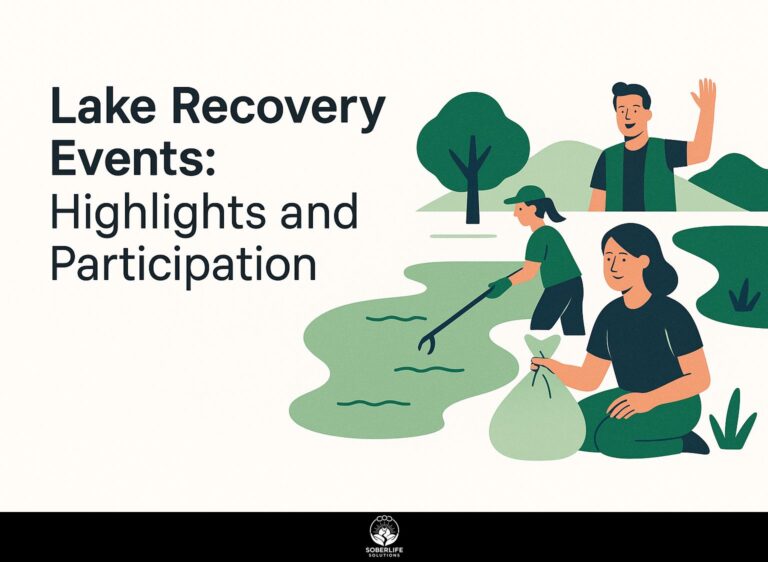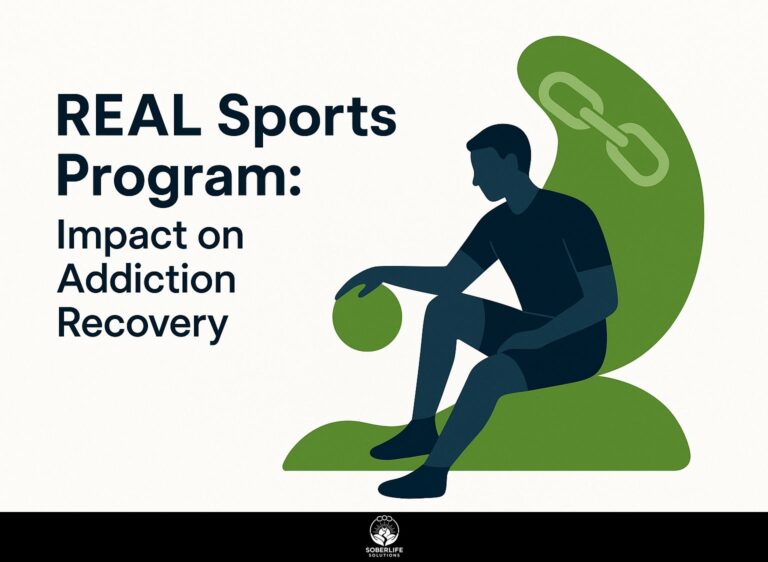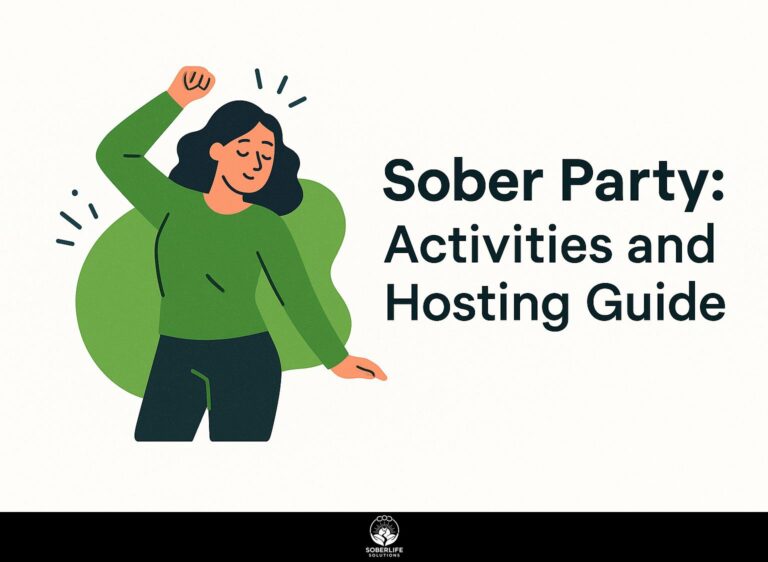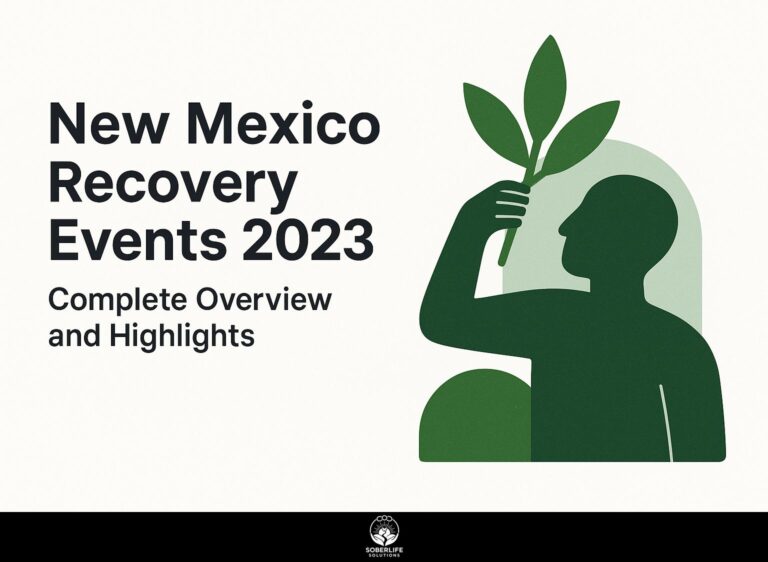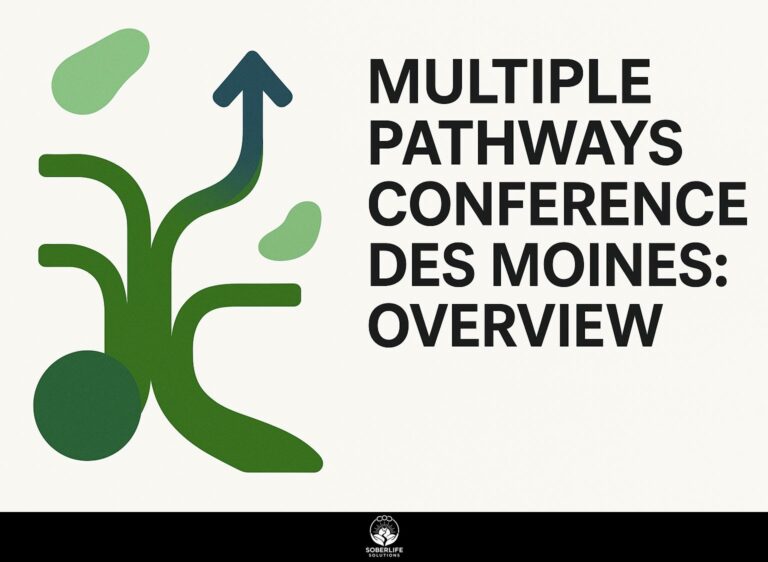National Recovery Month: Definition, Significance, Key Events
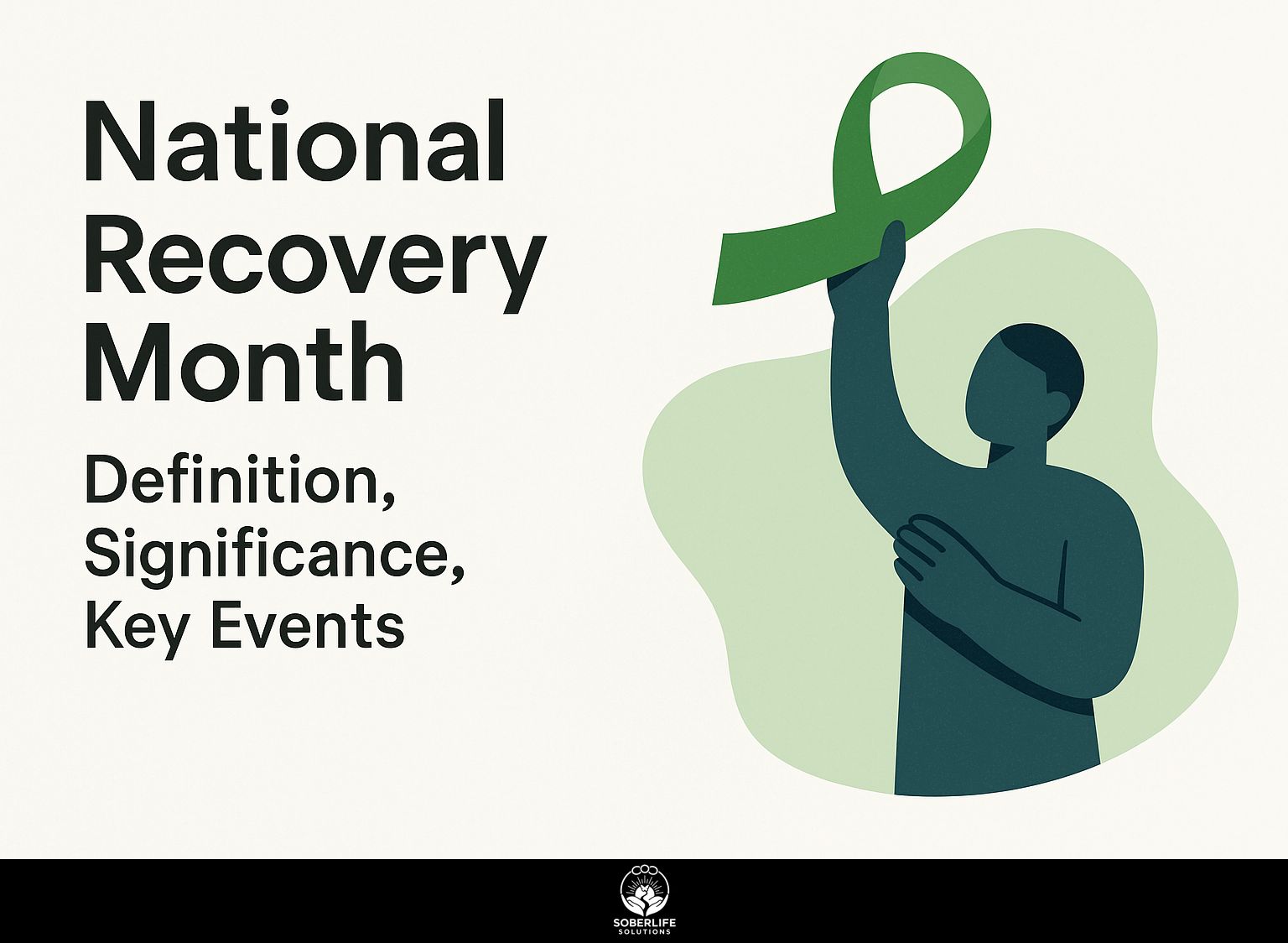
National Recovery Month celebrates the resilience of individuals overcoming substance use disorder, highlighting the message that treatment works! This month, organized by the Substance Abuse and Mental Health Services Administration (SAMHSA), focuses on raising awareness of addiction recovery. In this article, we’ll look at what National Recovery Month is, why it matters, and its main events. This will help you learn more and get involved with this important initiative. Celebrate with us as we recognize the path to recovery!
Key Takeaways:
Overview of the Month
September serves as a platform for various organizations to highlight recovery services and the importance of public awareness in combating addiction.
National Recovery Month, led by SAMHSA, focuses on hope and support for people dealing with substance abuse. To further assist communities, SAMHSA offers comprehensive resources, including their 2024 Recovery Month Toolkit, which provides strategic guidance on maximizing outreach efforts.
SAMHSA employs strategic communication methods such as social media campaigns, community events, and partnerships with local organizations to disseminate information and resources.
Throughout September, groups like the National Association of Alcoholism and Drug Abuse Counselors actively engage communities by organizing workshops and informational sessions (for a structured approach, check out our step-by-step guide on participating in Recovery Month).
These programs increase awareness and motivate people to get help, creating a supportive setting for recovery.
History and Origins
Established in 1989, National Recovery Month began to educate the public on addiction and recovery, emerging from the need for increased awareness of substance use issues.
Over the years, National Recovery Month has changed to show how addiction recovery has developed. Key milestones include the introduction of evidence-based practices in the late 1990s, which emphasized a scientific approach to treatment and recovery.
The rise of the opioid crisis in the 2000s shifted the month’s focus, leading to efforts targeting this public health issue. Today, the campaign focuses on the importance of community support, education, and complete recovery services for individuals and their families, encouraging a more empathetic view of addiction (as highlighted in a recent study on ResearchGate).
Definition of National Recovery Month
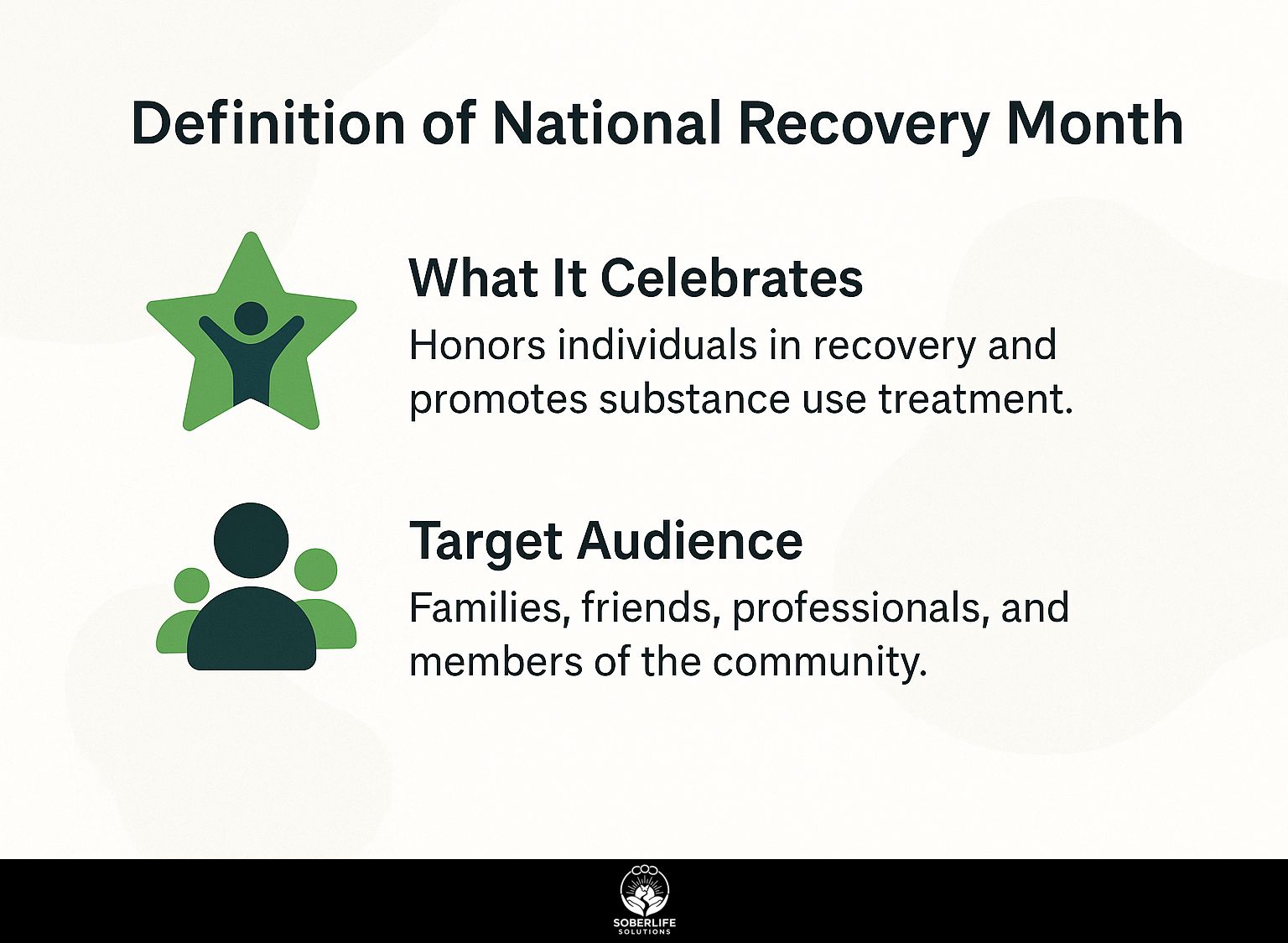
National Recovery Month honors the progress of individuals recovering from substance use issues and spreads the word that recovery can be achieved.
What It Celebrates
The month focuses on celebrating individuals in recovery and the healthcare professionals who support them, encouraging communities to show their support.
Communities can be important by setting up events like recovery walks or wellness fairs that help people connect and increase awareness.
Sharing success stories through local media can highlight positive outcomes and inspire others.
Having support groups run by trained professionals offers guidance and creates safe spaces for people to share their experiences.
Tools like social media campaigns or crowdfunding platforms can increase these efforts, allowing more people in the community to get involved and support recovery projects.
Target Audience
The primary audience for National Recovery Month includes individuals in recovery, healthcare professionals, and advocates for addiction recovery initiatives.
Important people are essential in National Recovery Month. Addiction professionals, such as counselors and therapists, offer support and resources to those in recovery, helping to guide them through challenges.
Mental health advocates raise awareness about the impact of addiction and promote stigma reduction. Community groups often hold events and educational programs, creating a welcoming space that promotes recovery.
Policymakers are involved, pushing for better laws and funding to support treatment initiatives. These groups work together to build a complete network that encourages optimism and offers essential support for healing.
Significance of National Recovery Month
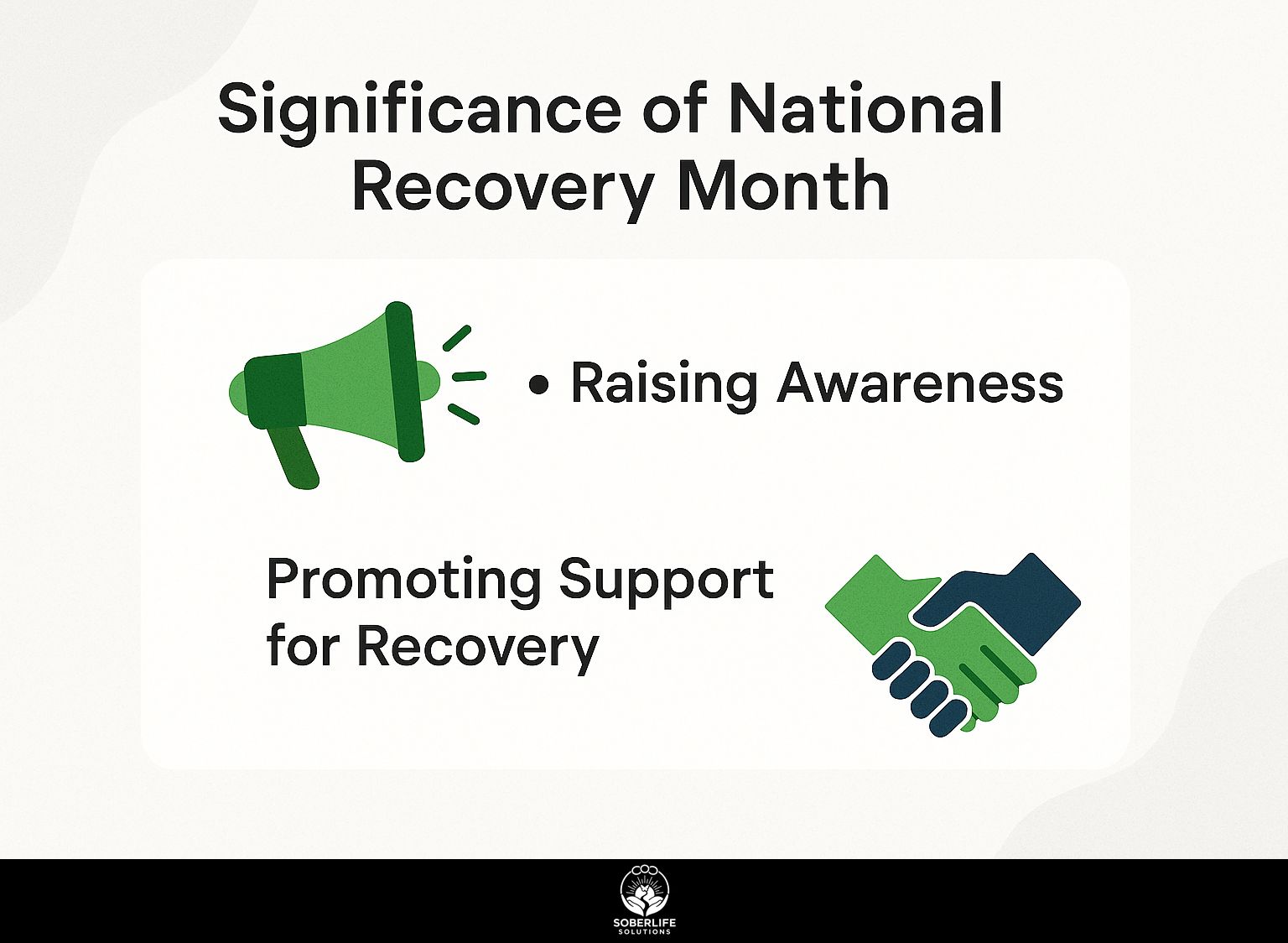
National Recovery Month is important because it helps people understand substance use disorders and encourages community support for recovery.
Raising Awareness
National Recovery Month effectively raises awareness about the challenges of addiction and the resources available for recovery through campaigns and events.
One useful approach during National Recovery Month is using social media campaigns. For example, organizations can create dedicated hashtags to encourage sharing personal stories and promote events. As noted in Meltwater’s analysis of successful health campaigns, leveraging social media can significantly enhance engagement.
Educational seminars can also be impactful, where local experts discuss addiction and recovery strategies.
Community outreach activities, like free classes or support group meetings, help build a strong connection with the local area. Collaborating with local businesses to sponsor these events can further expand their reach, increasing community involvement and support for those in recovery.
Promoting Support for Recovery
National Recovery Month focuses on improving support systems for recovery, urging communities to strengthen their recovery services.
Communities can take actionable steps by hosting workshops that educate individuals about available recovery resources, such as local rehabilitation centers or support groups. For more insights, explore how to participate effectively with our step-by-step guide on Recovery Month.
Working together with healthcare providers and community groups can improve care methods.
Monthly community meetings can encourage conversation between service providers and people in recovery, leading to care and support that matches personal needs.
By putting these plans into action, communities can build a supportive setting that helps people recover and encourages long-term health.
Key Events During National Recovery Month
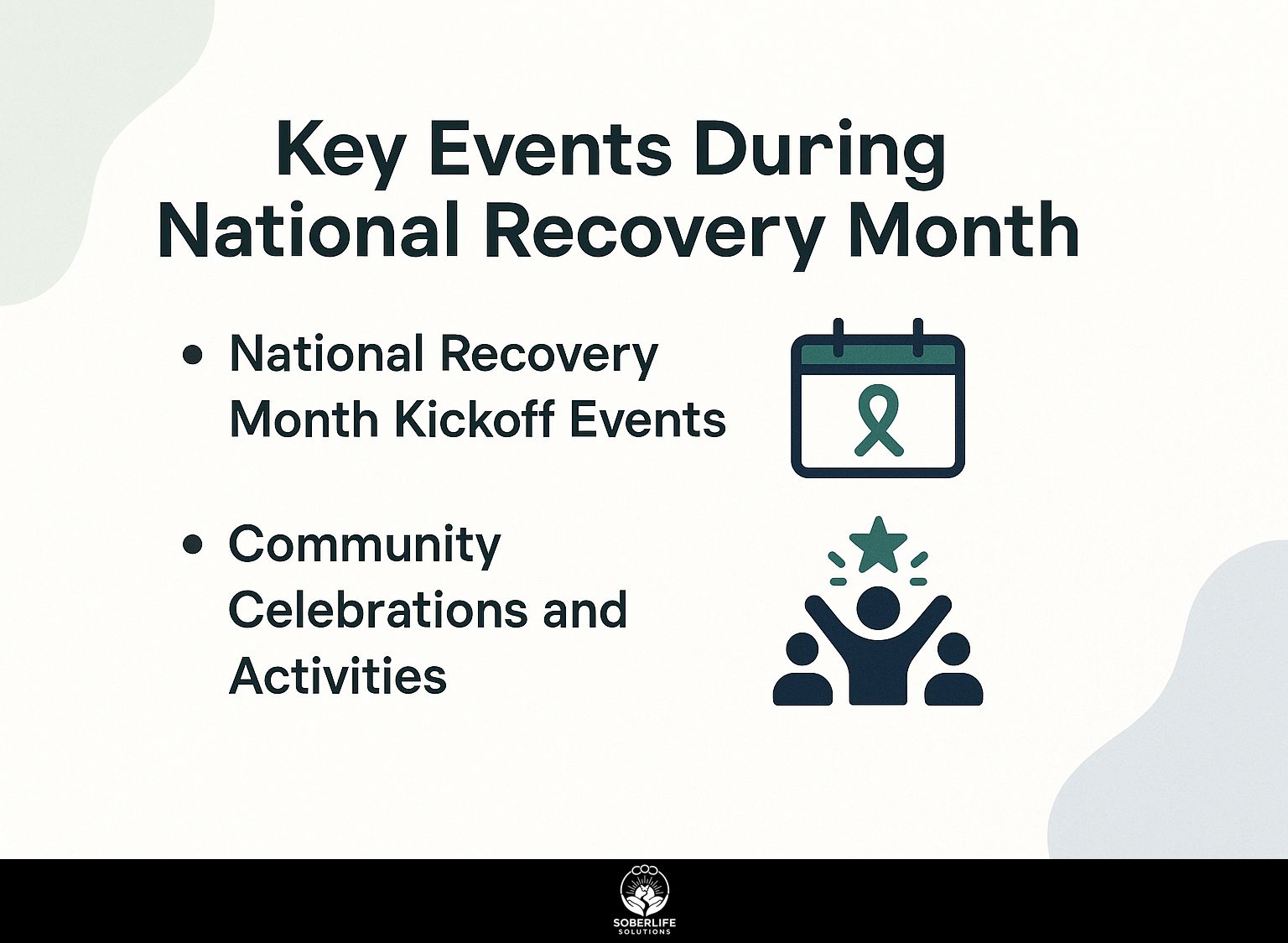
National Recovery Month includes many events that focus on building community involvement and backing recovery efforts.
National Recovery Month Kickoff Events
Kickoff events for National Recovery Month often include rallies, walks, and informational webinars that unite communities in support of recovery.
For example, in 2022, a rally in Denver attracted over 1,000 participants, raising significant awareness about local recovery services and resources. In a similar event, a walk in Atlanta gathered 500 people and shared personal stories of success, creating a feeling of togetherness.
Webinars run by local nonprofits had over 300 participants, providing important information about addiction treatment choices. These events give people in recovery a place to connect and encourage community backing and learning, significantly increasing local awareness efforts.
Community Celebrations and Activities
Throughout September, communities organize diverse celebrations and activities designed to engage individuals and promote recovery awareness.
Events like recovery fairs are lively spaces that highlight local services and groups. They share success stories and provide helpful resources.
Educational forums led by experts encourage conversations about addiction and healing, exemplified by initiatives like the `Hope & Healing’ workshops in California.
Family-friendly events like community picnics or art therapy sessions bring people together. For example, the Chicago Recovery Month fair includes games and art displays for children.
Together, these events create an environment of support, education, and togetherness integral to recovery.
How to Get Involved
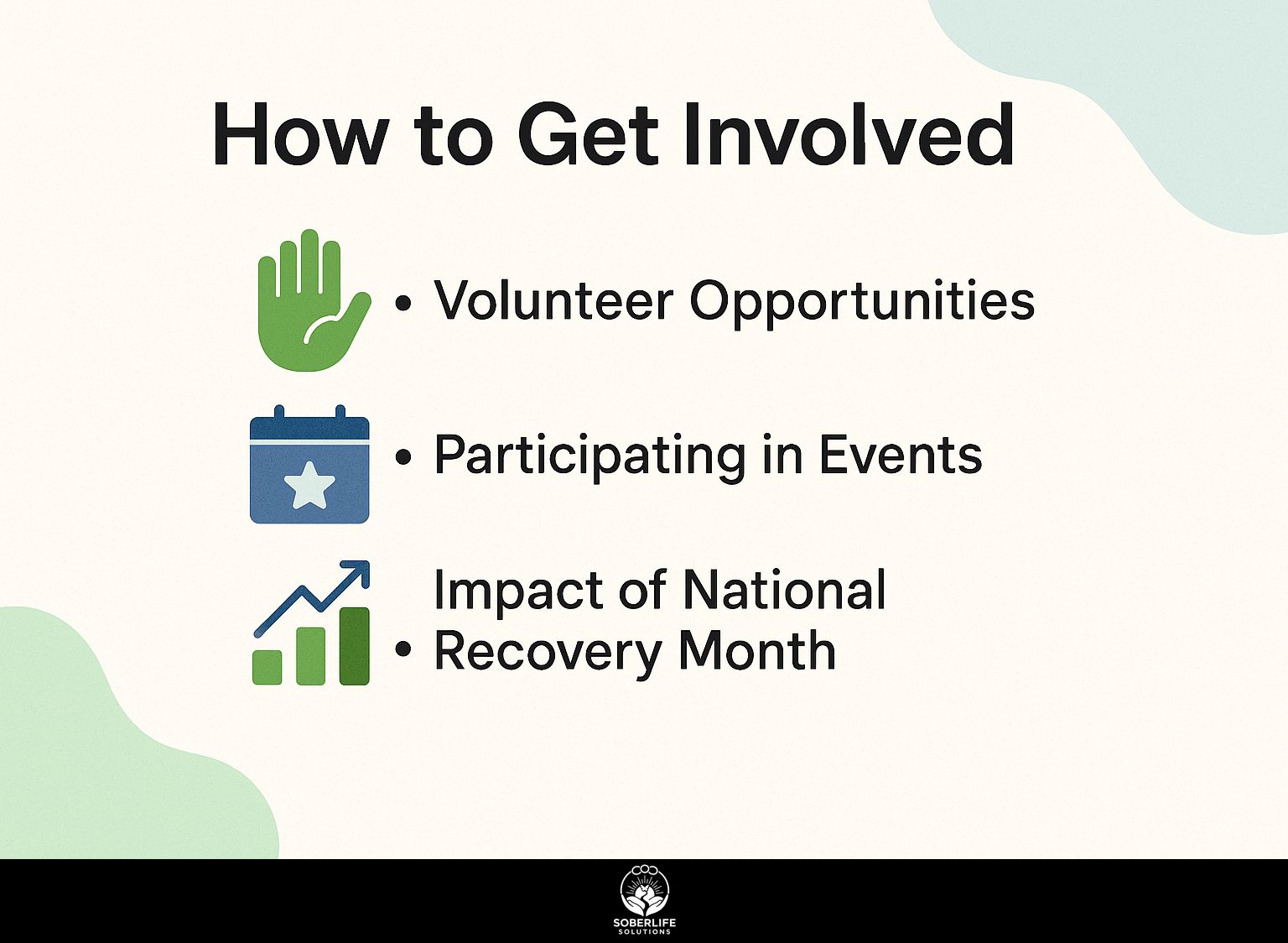
Participating in National Recovery Month gives people and groups many chances to help the effort for recovery support.
Volunteer Opportunities
Many volunteer opportunities come up during National Recovery Month, letting people help with recovery services and local projects.
Local recovery centers like the Recovery Community Organization often look for people to help with different tasks, including planning events and providing direct support.
You can also get involved in initiatives like community walks or fairs; these usually require a commitment of a few hours on weekends. To sign up, visit their websites or contact them directly through social media.
For a more hands-on approach, consider volunteer days at shelters or food banks, which typically require a few hours a month and can greatly impact those in recovery.
Participating in Events
Participation in events during National Recovery Month provides a meaningful way to show support for individuals in recovery and engage with the community.
To get involved, start by researching local events through community centers or social media platforms. Look for gatherings such as recovery walks, workshops, or volunteer opportunities.
Engage with organizations like the Substance Abuse and Mental Health Services Administration (SAMHSA) that often list events nationwide. Attend meetings and participate actively, sharing your experiences or offering support.
Using platforms like Meetup and Eventbrite can help you find recovery-related activities nearby, create community connections, and raise awareness.
Impact of National Recovery Month
The supportive messages and advocacy during National Recovery Month increase awareness about addiction recovery and its challenges.
Better knowledge often leads to more active participation in the community. For example, many local organizations report a 30% rise in attendance at support group meetings and events throughout September.
Feedback from attendees shows how shared experiences and resources can encourage people to ask for support. Utilizing social media platforms for awareness campaigns helps target younger demographics, creating an online support network that complements traditional methods.
By using tools like Facebook events and Twitter hashtags, communities can improve their outreach and create a more welcoming environment for recovery. Exploring brief interventions for Alcohol Use Disorder (AUD) can also provide valuable insights into effective support strategies, as detailed in our analysis of AUD intervention effectiveness.
Frequently Asked Questions
What is National Recovery Month?
National Recovery Month is an annual observance held in September to promote and support individuals who are in recovery from mental health and substance use disorders.
What is the significance of National Recovery Month?
National Recovery Month wants to increase awareness about mental health and substance use recovery, and to recognize the achievements of people who have recovered.
When was National Recovery Month established?
National Recovery Month was established in 1989 by the Substance Abuse and Mental Health Services Administration (SAMHSA), with the goal of educating the public on mental health and substance use disorders and the benefits of treatment and recovery.
What are some key events during National Recovery Month?
Throughout September, there are various events held to celebrate and support individuals in recovery, including community walks, rallies, workshops, and educational programs. There is also an annual observance held on September 10th, known as “Recovery Day”.
Who participates in National Recovery Month?
National Recovery Month is observed by a wide range of organizations, including government agencies, healthcare providers, treatment facilities, and community groups. It encourages people who are healing to talk about their experiences and motivate others to get support.
How can I get involved in National Recovery Month?
There are many ways to get involved in National Recovery Month, such as attending local events, sharing information and resources, and supporting individuals in recovery. You can also visit the SAMHSA website for more ideas and resources on how to participate.

